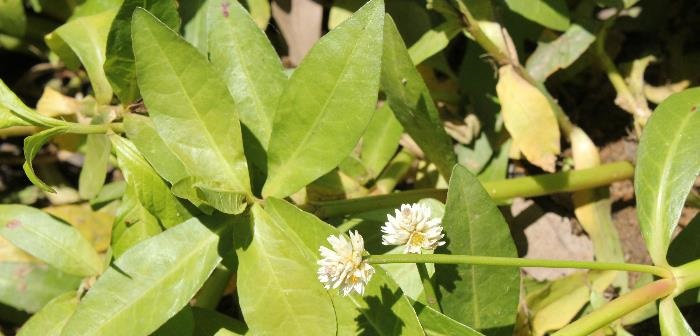Weed Management in Campbelltown

Weeds are plants that grow in an environment where they are unwanted or where they compete with other plants like cultivated crops or native plants in bushland. Weed infestations can be very unsightly and can cause damage to agriculture and the environment and can even threaten tourism and recreational activities.
New legislation for managing weeds
The legislative framework for managing noxious weeds in NSW has changed. The Biosecurity Act 2015 (The Act) came into effect on 1 July 2017 replacing the Noxious Weeds Act 1993. This change aims to simplify existing procedures, stream line biosecurity risk management and promote a shared responsibility to protect NSW from biosecurity risks.
Under The Act the term "noxious weed" is no longer used and previous noxious weed classes have been abolished. These have been replaced with new term of "priority weeds".
Priority weeds
Priority weeds in the Sydney region are specified in the Greater Sydney Regional Strategic Weed Management Plan 2023-2027. The Plan was developed by Greater Sydney Local Land Services (state government) in consultation with various weed management stakeholders including local governments, NSW Department of Primary Industries, National Parks and Wildlife Service, Landcare, NSW Farmers Association, Nursery and Garden Industry Association, Aboriginal land managers, public land managers (i.e. Transport NSW, Roads and Maritime Services, Water NSW, NSW Department of Industry - Lands) and the broader community across the Greater Sydney region.
Priority weeds that are listed as "State Priority Weeds" and "Regional Priority Weeds" have specific measures for the control of individual weed species no matter of the land ownership or location meaning treatment is to be undertaken on both government and private lands.
"Other Weeds of Regional Concern" have been reviewed using NSW DPI Weed Risk Assessment process which takes into account overall weed infestation risk and feasibility of coordinated control. Those weeds found to feasible for control within a limited geographic area or portion of a local government area may be targeted in some strategic situations and known as "Local Priority Weeds".
The majority of weeds occurring within the local government area will not be considered for treatment as they are either widespread (where the feasibility of coordinated control is not achievable) or the risk to agriculture or the environment is considered low.
What are Council's obligations?
Under the Biosecurity Act 2015, Council as the Local Control Authority for weeds in the Campbelltown local government area, has a legal obligation to prevent, eliminate, minimise and manage the biosecurity risk posed or likely to be posed by reducing the impacts of Priority Weeds on the community, agriculture and the environment.
Council meets these obligations by:
- Developing, implementing, coordinating and reviewing strategic Priority Weed management activities on Council owned or managed lands.
- Inspecting private lands and key high risk locations for weed spread to ensure that owners or managers carry out their obligations to manage Biosecurity Risks as imposed under the Act by controlling Priority Weeds.
- Providing weeds education and advice to residents regarding best practice management of weeds on their land.
Learn more about plants that have been identified and are currently being managed as Priority weeds in the Campbelltown local government area.
Weed identification smart device app
In March 2015 the NSW Department of Primary Industries released NSW WeedWise, a smart phone app that provides weed profiles for more than 300 noxious and environmental weeds effecting or threatening NSW.
The app provides all of the legal control requirements for Priority Weeds under the Biosecurity Act 2015, physical descriptions of weeds including images, information about potential impacts, methods of spread and preferred habitat. The app also provides latest control options, registered herbicides for treatment including application rates and techniques as well as the ability to directly report sightings of high priority weeds via email or SMS to the NSW DPI.
WeedScan is a free weed identification tool that uses an artificial intelligence model developed by the CSIRO to identify priority weeds. It also links users to weed biology and management information relevant to their location and allows them to notify state and local government of new weed incursions.
The platform is currently in the Beta Testing Period, with only the website app currently available and a smartphone app due for release in October 2023.
For more information please visit Weeds Australia
For further information on the Biosecurity Act 2015 visit the NSW Department of Primary Industries website or the NSW Legislation Biosecurity Act 2015 website.
Report priority weeds
open.space@campbelltown.nsw.gov.au
Related information